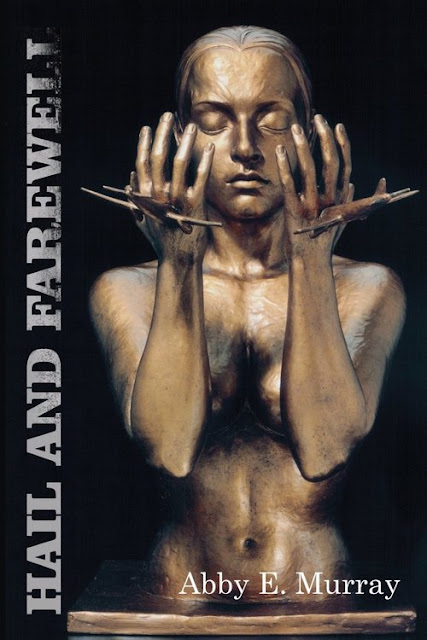The Middle West Press LLC project is in partnership with the Military Writers Guild. Contributors include service members past and present, as well as scholars, historians, journalists, and civilians with experiences in international relations and national security.
The book coincidentally features the musings of a number of published war poets, including but not limited to:
- Hugh Martin, author of "The Stick Soldiers" and "In Country"
- Colin D. Halloran, author of "Shortly Thereafter" and "Icarian Flux"
- Jonathan Baxter, author of "The Ghosts of Babylon"
Response to the anthology from other war writers has been overwhelming and positive:
"Page by page, line by line, these men and women—veterans and civilians of various eras and nations—speak the truth about what it is like not just to fight, but to write," notes U.S. Army veteran Doug Bradley, author of "Who'll Stop the Rain: Respect, Remembrance, and Reconciliation in Post-Vietnam America" as well as other non-fiction and fiction about that war. "'The power of a good story is as important as the sharpest policy paper,' writes one Vietnam-veteran senator's son. As a U.S. Navy chopper pilot who himself flew in Afghanistan, he couldn't be more accurate. Read this book and discover what he means!"U.S. Marine veteran and literary agent Tracy Crow says:
"A notable first, 'Why We Write' delivers immeasurable, experiential wisdom from an impressive range of military voices regarding the power and impact of writing—on the self, on the truth, and ultimately on the world. […] The courageous contributors within 'Why We Write' are filling a disturbing void for humanity by expressing a sense of urgency and historical reflection about the complexities of war—whether writing and reflecting on the insanely humorous, or the insanely atrocious."Crow also serves as president of the national non-profit MilSpeak Foundation, Inc., and is the author of six military-themed fiction and non-fiction titles, including "On Point: A Guide to Writing the Military Story."
The "Why We Write" anthology comprises four sections, each loosely organized around a theme:
- Calls to Action, Calls to Arms: Stories of how-to and inspiration toward engaging the public and/or the military profession through writing!
- War Stories: Stories of writing success and lessons-learned!
- Building Bridges & Platforms: Stories of how-to and inspiration toward building connections, communities, organizations, author platforms, etc.!
- The Arts of War & Writing: Essays about writing literary fiction, genre fiction, poetry, history, and more!
To order the $19.99 (U.S.) print version via Amazon.com, click here!
To order the $9.99 (U.S.) Kindle e-book version, click here!
To order via an independent bookstore, contact Beaverdale Books, Des Moines, Iowa at: 515.279.5400. Phone orders only. Shipping & Handling approximately $4 (U.S.).
Anthology co-editor Randy Brown is an award-winning war poet (Welcome to FOB Haiku: War Poems from Inside the Wire) and U.S. Army veteran who embedded as civilian media in Afghanistan in 2011. A former newspaper and magazine journalist, he previously edited the book Reporting for Duty: U.S. Citizen-Soldier Journalism from the Afghan Surge, 2010-2011.
Widely published in literary journals and anthologies, Brown has also written the Red Bull Rising military blog since December 2009. He writes about military-themed writing techniques and markets at The Aiming Circle blog. He is a member of the Military Writers Guild. On Twitter, follow him at: @FOB_Haiku
Steve Leonard is a retired U.S. Army strategist, a program director in organizational leadership at the University of Kansas, Lawrence, and the creative force behind the web comic Doctrine Man!! He is published widely, including in the anthologies Strategy Strikes Back: How Star Wars Explains Modern Military Conflict, and Winning Westeros: How Game of Thrones Explains Modern Military Conflict. He is a member of the Military Writers Guild. On Twitter, follow him at: @Doctrine_Man
Established in 2017 for the purpose of promoting professional collaboration in the practice of writing, the national non-profit Military Writers Guild has grown to comprise more than 150 past and present service members, as well as civilians with experiences in international relations, national security, journalism, and intelligence.
Middle West Press LLC is a Johnston, Iowa-based editor and publisher of non-fiction, fiction, journalism, and poetry. As an independent micro-press, it publishes one to four titles annually. “Why We Write” is the first of its projects conducted in partnership with an association, and the fifth of its titles involving war and military themes.
Steve Leonard is a retired U.S. Army strategist, a program director in organizational leadership at the University of Kansas, Lawrence, and the creative force behind the web comic Doctrine Man!! He is published widely, including in the anthologies Strategy Strikes Back: How Star Wars Explains Modern Military Conflict, and Winning Westeros: How Game of Thrones Explains Modern Military Conflict. He is a member of the Military Writers Guild. On Twitter, follow him at: @Doctrine_Man
Established in 2017 for the purpose of promoting professional collaboration in the practice of writing, the national non-profit Military Writers Guild has grown to comprise more than 150 past and present service members, as well as civilians with experiences in international relations, national security, journalism, and intelligence.
Middle West Press LLC is a Johnston, Iowa-based editor and publisher of non-fiction, fiction, journalism, and poetry. As an independent micro-press, it publishes one to four titles annually. “Why We Write” is the first of its projects conducted in partnership with an association, and the fifth of its titles involving war and military themes.







